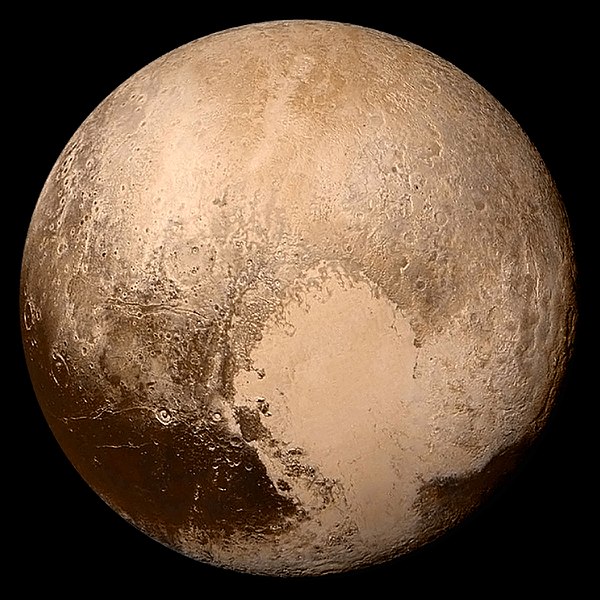Pluto: A Planet. Not A Planet! A Planet?
Do you remember when we all heard the shocking news? Pluto, always regarded to be the farthest planet from the sun was demoted in 2006. It was at a conference of the IAU, the International Astronomical Union, that scientists decided on a new definition of the term “planet “. The reason was a series of new discoveries.

Pluto had always been unique among the planets. Its orbit is quite elliptical compared to the almost circular orbits of the other planets. During some time of Pluto’s year, it is even closer to the sun than Neptune. In addition, the orbit is slanted with respect to the ecliptic plane of the other planets. Both of these peculiarities indicate that Pluto was formed in a different way to the other planets.
Over time people discovered more and more small objects about the same distance as Pluto and beyond. Pluto was not even the most massive of these objects. So a choice had to be made. Either call all of these objects Planets or redefine the term Planet in such a way that Pluto is excluded from the list.
The second of these options is exactly what happened. The IAU re-defined the term Planet to mean the following.
A planet is a celestial body which:
- is in orbit around the Sun,
- has sufficient mass to assume hydrostatic equilibrium (a nearly round shape), and
- has "cleared the neighbourhood" around its orbit.
It is the last point that Pluto fails on. All the other planets have thrown out any smaller objects in their paths over time. When the Solar System was young, there were many small objects orbiting around the sun. Earth and other planets suffered regular violent impacts from large rocks. Over time, the gravity of the planets either sucked up these objects or it hurled them out of the solar system.
Pluto, on the other hand, orbits in a region that still contains many small objects that could at some point collide with it. Pluto is simply not large enough to throw its weight around.
From the moment the decision was made in 2006 it found resistance among some astronomers. The definition is heavily focused on the way that the planets were formed in the solar system.
But did you notice something in the definition? Yes, it explicitly mentions the Sun! This means that according to the IAU definition of 2006 other stars do not have planets. This is clearly unsatisfactory from today’s point of view. There is a growing number of exoplanets discovered every week. To refuse them the term planet is infuriating for all exoplanet astronomers. In addition, it is impossible to test the third condition, that the object has cleared the neighbourhood around its orbit, from so far away. Some of these scientists are proposing a definition that relies only on the mass, the orbital distance, and the lifetime of the system.
A number of other scientists, mainly exobiologists, want to see a definition that focuses more on the type of worlds that a planet could sustain. So they would argue that a planet should have an atmosphere and should be able to sustain a complex geology. In this definition, Pluto would be a planet again. But then so would many of the larger moons of Jupiter and Saturn. Saturn’s moon Titan and Jupiter’s moon Io both have substantial atmospheres.
So we may see a future in which there are a number of different definitions for the term planet by different organisations. So you would always have to ask who you are speaking to when classifying an object as planet.
I feel for the teachers and the authors of school textbooks who somehow have to explain this to the confused primary school children.
Science against prejudice
Science against racism
Pluto Image by NASA / Johns Hopkins University Applied Physics Laboratory / Southwest Research Institute,
image in the public domain
This is very interesting information. Honest to say, i didn't even know of this revised criteria for qualifying a celestial body as a planet. And i bet you, not so many people out there know. This information is valuable for the community.
This Post, @platicmars, has now been chosen and will be featured in the 7th Edition of Xposed. Hopefully it will bring you some much needed exposure and rewards which your post deserves.
For more details on this project, read Xposed Introduction
You may also check out the 6th Edition
its pretty amazing , and love it